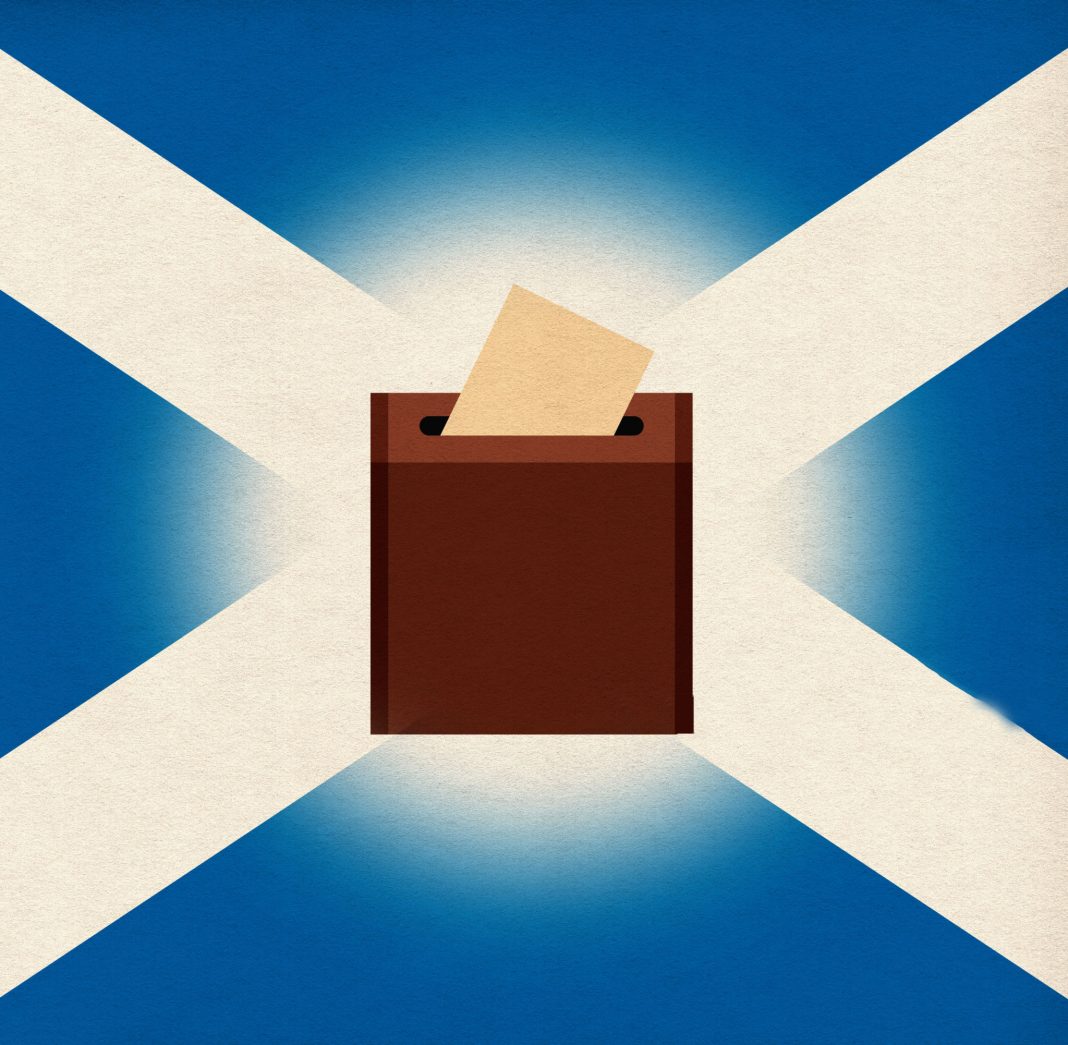Only a few weeks remain before the 2021 Scottish Parliament elections and political parties in the country are doing what they can to win more votes. There is an impression that the SNP will win a majority to pursue its policies, such as holding another independence referendum. Opposition to SNP policies and approaches can be seen among those who would prefer Scotland to stay in the United Kingdom and argue that SNP follows its own interests rather than Scotland’s interests. The Conservative Party of Scotland has already accused the SNP of putting party interests before the fight with the pandemic by insisting on an independence referendum. On the other hand, a recent poll by YouGov for the Times has suggested that as the elections get closer, 51% of people in Scotland back the union and 49% back independence.
The SNP Split on Election Threshold
The Scottish National Party is the largest Scottish political party in both Holyrood (Scottish Parliament) and Westminster (UK Parliament); it is also the ruling party in Scotland. It was formed in 1934 with the union of the National Party of Scotland and the Scottish Party. From the beginning, disagreements existed in the SNP over policies and cultural aims. SNP Members had disagreements over the party’s relations with other political parties too. During the 60s and 70s, the SNP started criticising British control over Scottish affairs, and later, during the 90s, it started gaining more popularity with the people. The SNP tried to attract support from businesses and trade unions. In 1997, the SNP did not win the general election, but joined the Labour and Liberal Democratic parties to campaign for a second referendum to establish the Scottish Parliament. The SNP became the main opposition party in Scotland and ended 50 years of Labour Party dominance in 2007. Its leader became the first ‘nationalist first minister’ of Scotland.
It Took Half a Century for the SNP to Win a Majority Vote
As there on ongoing discussions for the parliamentary elections to be postponed due to the pandemic, and while the UK has been one of the worst-hit countries, the SNP continues to persist on its plan for an independence referendum. The SNP has tried hard to gain a majority in the 2021 parliamentary elections to pursue its own independence plan. The Conservative Party of Scotland has argued that SNP leader, Nicola Sturgeon, has placed her party’s interests before that of the country and added that this is not the right time to talk about independence. He suggested that such talks have damaged trust in the Scottish government. Many people in Scotland do not want an independence referendum presently as the country recovers from the coronavirus pandemic. A recent poll by YouGov has suggested that if a second referendum is held soon, more than half of voters in Scotland will vote in favour of remaining in the UK. The poll also suggests that the recent disarray within the SNP has split the voters and caused mistrust in Nicola Sturgeon.
Holding a Scottish Election is not Certain as SNP Pursues its own Policies
Gail Hendry, a former candidate for the SNP and sister of Alex Salmond, has recently announced that she is stepping away from the party, but will support the independence referendum. She has argued that gaining independence does not rely on one person or one party, but it is the will of the people. Her departure takes place at a time when the Scottish government is dealing with the pandemic crisis and needs more support in the forthcoming elections. In 2018, allegations of sexual misconduct were made against Alex Salmond, former SNP leader, which recently ended in a conflict between him and the current SNP leader. Alex Salmond has accused Nicola Sturgeon of a plot against him, wasting Scottish taxpayers’ money. Although accusations were entirely rejected by the former leader and Salmond was acquitted, some other SNP members abandoned the party due to the conflict and this can lead to a drop in votes in the elections.
Intraparty Differences are the Source of SNP Decline
With all the ups and downs in the country before the parliamentary elections, the SNP leader has published a roadmap to the referendum on independence. The roadmap sets out the plans for another independence vote in Scotland and presents the two bills which Holyrood would lay as the groundwork for a referendum. The Scotland in Union campaign believes that the SNP plan is not benefiting the people of Scotland, because they will have an extra 10 billion pounds to fight the coronavirus if they stay in the UK. They have argued that by leaving the UK, Scotland’s economy would be hit harder than it was by Brexit. The SNP has been insisting on a second referendum and has said that, by winning a majority vote in the parliamentary elections, it will give the Scots the right to choose their own future. But the London School of Economics (LSE) has conducted a research on Scotland’s independence, showing that it would damage Scotland’s economy severely and would not benefit the people.
SNP Victory a Necessity for Scottish Society or NOT?
With less than two months to go until the Scottish parliamentary elections, political parties have been campaigning to attract more voters. Among the main parties, the SNP is the party of government in Scotland and is seeking a majority vote in the upcoming elections. The party was formed in 1934, but only ended the Scottish Labour Party dominance in 2007 to bring a nationalist to power as the first minister of the country. The SNP pushed for independence from the UK in 2013 and a referendum was held in 2014, resulting in a remain vote. The party leader has been insisting on another referendum being held after the elections. Opponents to the SNP accuse party officials of putting their own interests before the country. This accusation has led to a fall in support for the SNP ahead of the Scottish parliamentary elections.

